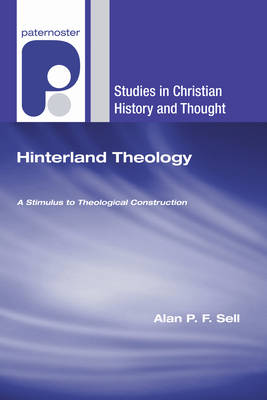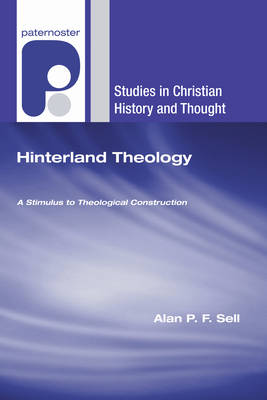
- Afhalen na 1 uur in een winkel met voorraad
- Gratis thuislevering in België vanaf € 30
- Ruim aanbod met 7 miljoen producten
- Afhalen na 1 uur in een winkel met voorraad
- Gratis thuislevering in België vanaf € 30
- Ruim aanbod met 7 miljoen producten
Zoeken
€ 128,45
+ 256 punten
Uitvoering
Omschrijving
Alan Sell maintains that systematic and constructive theology are best understood as the product of a conversation with the biblical writers, the heritage of Christian thought and the current intellectual environment. The conversation will benefit if the voices of hinterland writers are heard as well as those of the theological and philosophical 'giants'. In this book ten hinterland theologians associated with English Dissent are introduced and their writings are discussed. Thomas Ridgley, Abraham Taylor and Samuel Chandler wrote in the wake of the Toleration Act of 1689; George Payne and Richard Alliott responded to the Enlightenment and the Evangelical Revival; D. W. Simon, T. Vincent Tymms and Walter F. Adeney took account of modern biblical criticism, and Robert S. Franks and Charles S. Duthie respectively lived through and followed the heyday of liberal theology. The study reveals both adjustments and time-lags in theology, and shows how hinterland theologians can stimulate the ongoing conversation concerning theological method, philosophico-theological relations, the Trinity, the atonement and ecumenism.
Specificaties
Betrokkenen
- Auteur(s):
- Uitgeverij:
Inhoud
- Aantal bladzijden:
- 732
- Taal:
- Engels
- Reeks:
Eigenschappen
- Productcode (EAN):
- 9781606083109
- Verschijningsdatum:
- 1/12/2008
- Uitvoering:
- Paperback
- Formaat:
- Trade paperback (VS)
- Afmetingen:
- 152 mm x 229 mm
- Gewicht:
- 1020 g

Alleen bij Standaard Boekhandel
+ 256 punten op je klantenkaart van Standaard Boekhandel
Beoordelingen
We publiceren alleen reviews die voldoen aan de voorwaarden voor reviews. Bekijk onze voorwaarden voor reviews.











